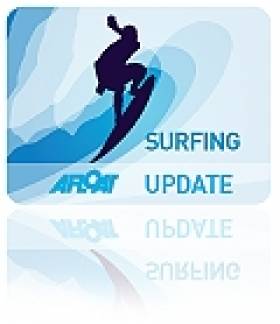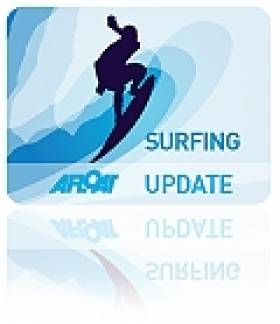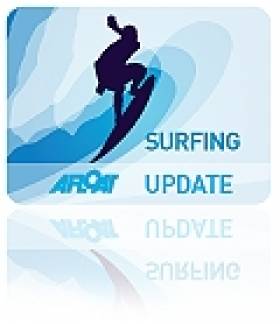Displaying items by tag: Ollie O'Flaherty
#SURFING - Ireland's surfing scene is on the crest of a big wave, according to BBC News in its profile of Mullaghmore Head rider Ollie O'Flaherty ahead of the Billabong XXL Big Wave Awards.
As previously reported on Afloat.ie, Lahinch native O'Flaherty and Devon surfer Andrew Cotton are both nominated for the $50,000 biggest wave prize, to be announced in Anaheim, California on 20 May.
Both surfers raised the bar with their tow-in efforts among the giant swells off Mullaghmore in Co Sligo, defying the dangers involved.
Even so, O'Flaherty is lucky not to be nominated for the less auspicious 'wipeout of the year'.
"I've definitely had one or two pretty big scares," he said. "Last October I got wiped out and was stuck at the bottom of one wave and I got picked up, hit and dragged over the reef three times."
But the Clare wave rider insists: "The thrill outweighs the consequence for me."
BBC News has much more on the story HERE.
'One Epic Day of Huge Surf' Caught On Film
#SURFING - A new short film tells the story of "one epic day of huge surf" at Mullaghmore Head, as Surfer Today reports.
The Northcore film 'Fathoms Left to Fall' follows some of the world's top big wave surfers as they converged on Co Sligo to take advantage of the swell, prompted by the extreme weather system known as the 'Viking storm'.
Among the Irish riders featured is 24-year-old Ollie O'Flaherty, who has been nominated for the 'biggest wave' prize in the 2012 Billabong XXL Big Wave Awards for his monster ride at Mullaghmore.
Also nominated for his outstanding effort at the Sligo surf mecca is Andrew Cotton, a Devon native who's no stranger to Ireland's big rollers.
Irish Surfer Needs Funds to Attend Big Wave Awards
#SURFING - A young surfer from Lahinch in Co Clare is in the running for the 'biggest wave' prize in the 2012 Billabong XXL contest for his monster ride at Mullaghmore Head, The Irish Times reports.
Ollie O'Flaherty, 24, is nominated along with Devon's Andrew Cotton for the massive surf they caught off Co Sligo on 8 March last.
It was the first visit to the world-class big wave spot by O'Flaherty, a science student at NUI Galway who is a veteran of the Co Clare scene.
As previously reported on Afloat.ie, it was Cotton who tackled the biggest wave on that day - a giant 50-footer - as some of the world's top surfers took advantage of the Viking swell.
Also nominated for the $50,000 (€38,280) prize is Irish-American surfer Garrett McNamara, who last year rode what is being called the biggest wave ever surfed in the world, a 90-foot goliath off Nazaré in Portugal.
According to the Irish Independent, O'Flaherty has put out a call for sponsorship so he can attend the awards ceremony next month.
"It's a massive honor to be able to represent Ireland," he said, but added that he is "pretty much on the breadline from what I'm doing".
Should he win, the Lahinch native said he intends to "put every cent back into surfing" and replace his seven broken boards.
The winners will be announced at the Billabong XXL Big Wave Awards in Anaheim, California on 4 May.
































































